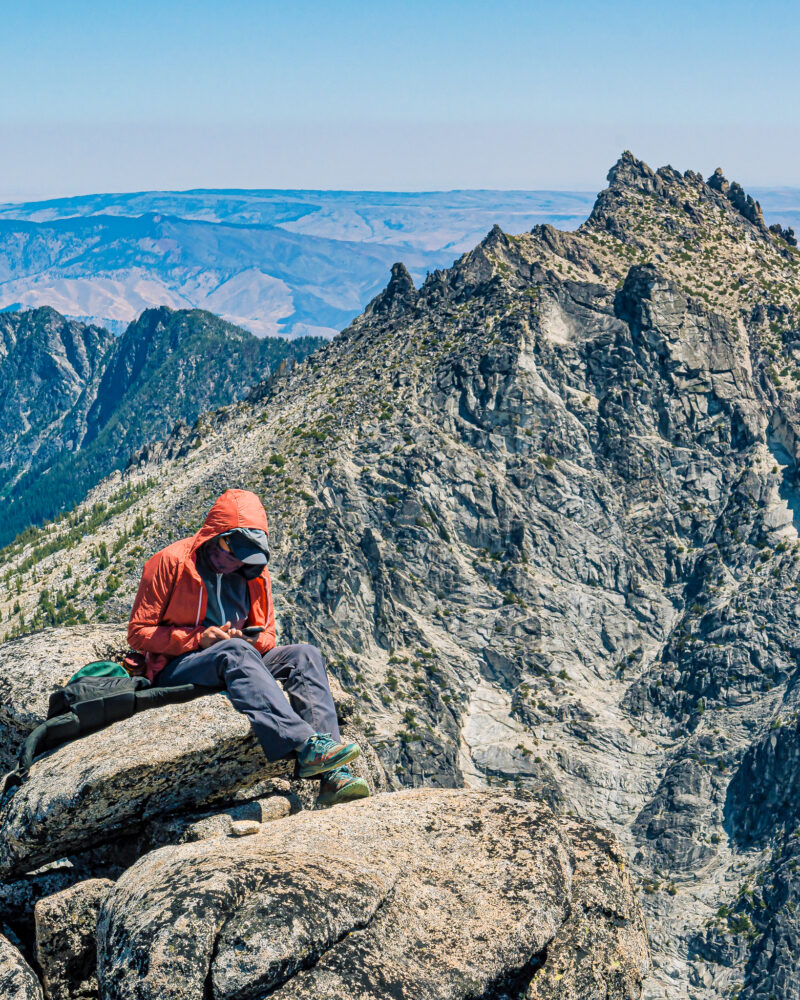
Embarking on a backpacking adventure into the great outdoors is an exhilarating experience. The promise of breathtaking vistas, solitude in nature, and memorable moments awaits. However, to make the most of your journey, having the right gear is crucial. In this guide, we’ll walk you through the essential equipment and gear you’ll need for a successful and enjoyable backpacking trip.
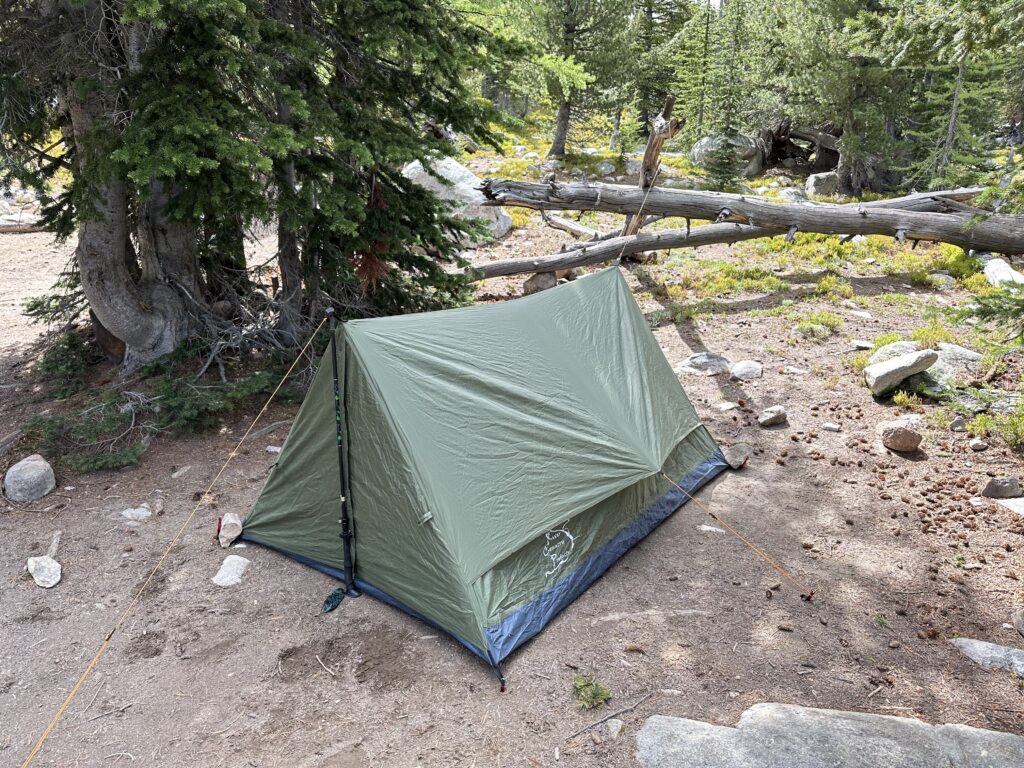
1. Trekking Pole Tent: Your Portable Shelter
Your trekking pole tent is your home away from home. We offer a range of high-quality trekking pole tents, including the Trekker Tent 2.2 and Trekker Tent 2 for accommodating two backpackers and the spacious Trekker Palace for two-person camping. If you prefer solo adventures, consider the Trekker Tent 1A, Trekker Tent 1, or the Trekker Pyramid. For larger groups, the Trekker Tent 4 provides ample space. These tents are lightweight, easy to set up, and designed to withstand various weather conditions.
2. Backpack: Your Mobile Storage Unit
Your backpack is not just a bag; it’s your mobile storage unit. The right backpack should be comfortable to wear and spacious enough to carry your gear. Look for one with multiple compartments and adjustable straps for a secure fit. The size of your backpack will depend on the length and nature of your trip, so choose accordingly.
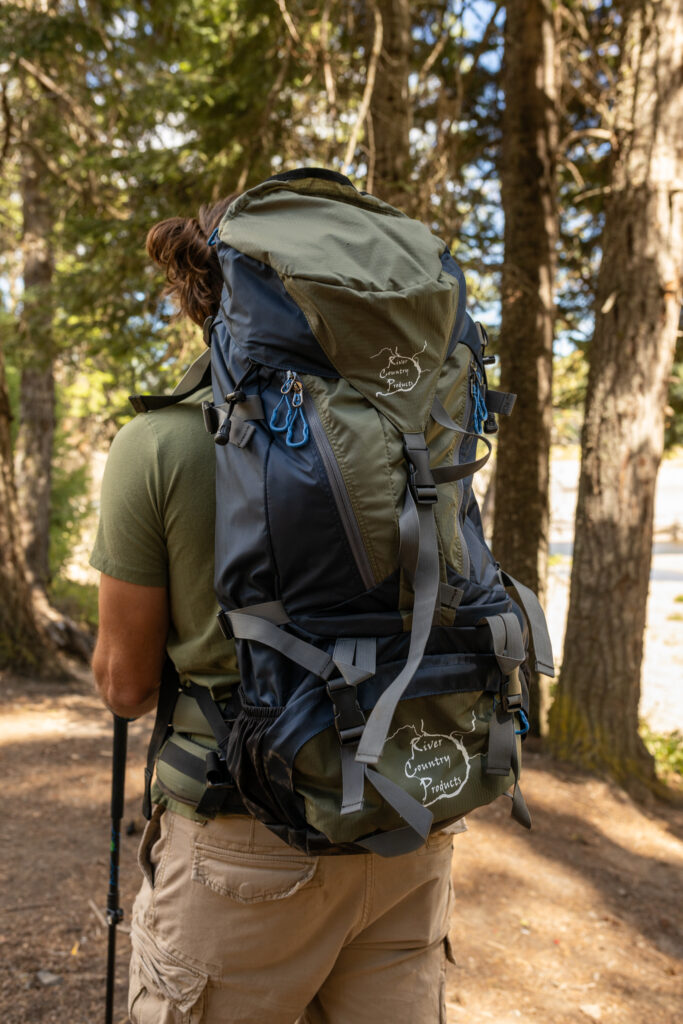
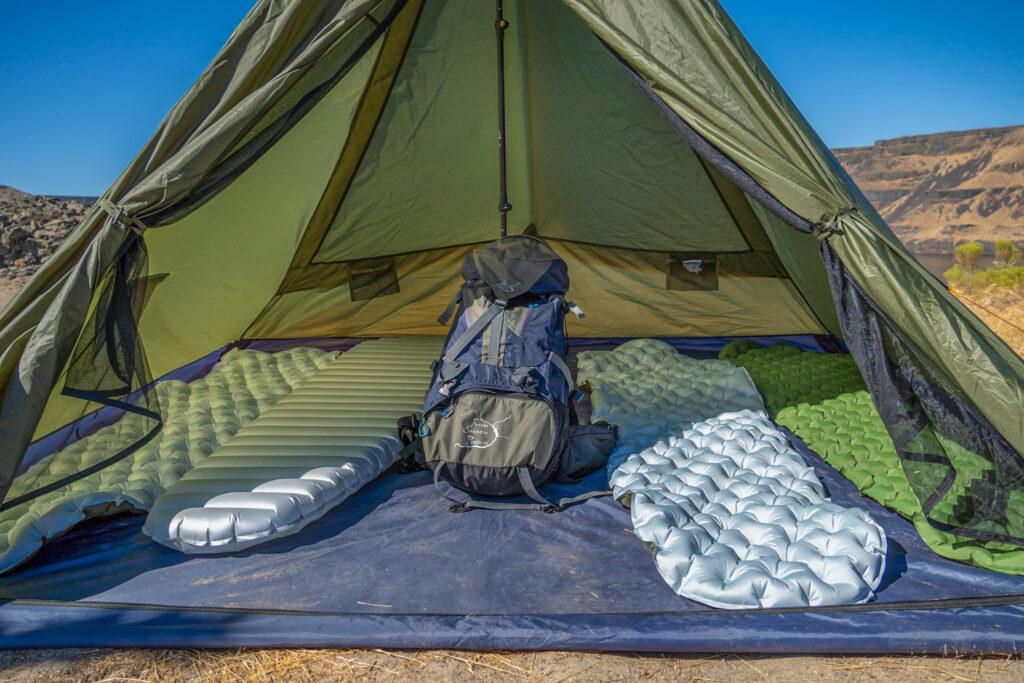
3. Sleeping Bag and Pad: Your Cozy Nest
A good night’s sleep is essential for a successful backpacking trip. Invest in a quality sleeping bag suitable for the season and climate of your adventure. Complement it with a sleeping pad for insulation and added comfort. Lightweight, compact sleeping bags and pads are ideal for backpacking, ensuring you stay warm and cozy even in the wilderness.
4. Footwear: Your Trusty Boots
Your choice of footwear can make or break your trip. Opt for sturdy, comfortable hiking boots or trail shoes that provide excellent support and grip. Ensure they are well broken-in to prevent blisters and discomfort on the trail. Additionally, bring extra socks to keep your feet dry and comfortable.
5. Trekking Poles: Stability and Support
Don’t forget to include River Country Products’ trekking poles in your gear lineup. These poles provide stability and support, reducing the strain on your knees and enhancing your balance on rugged terrain. Choose from the Hybrid Carbon Trekking Poles, 100% Carbon Fiber Trekking Poles, or the Carbon Fiber Folding Trekking Poles to suit your preferences and needs.
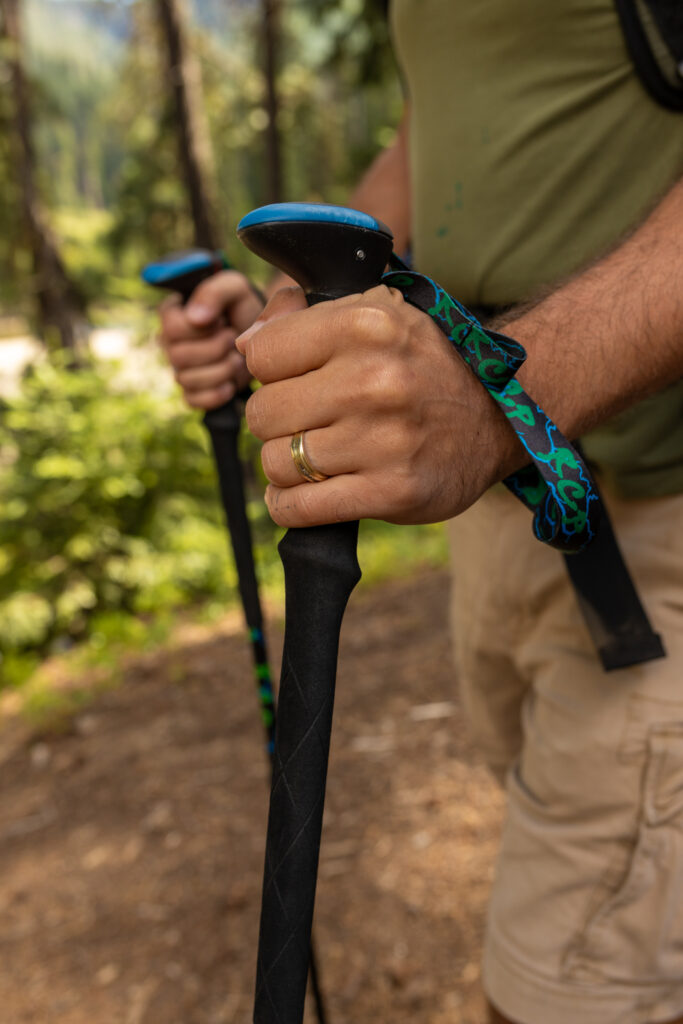
6. Clothing: Layering for Versatility
Dressing in layers is the key to staying comfortable during variable weather conditions. Include moisture-wicking base layers, insulating mid-layers, and waterproof outer shells in your clothing selection. Don’t forget a hat, gloves, and a good pair of sunglasses for added protection.
7. Navigation Tools: Your Trail Guide
Carry essential navigation tools like a map, compass, and a GPS device. Familiarize yourself with the trail and your route, and always have a backup navigation method. Knowing how to use these tools is as important as having them.
8. Water Treatment: Hydration is Key
Access to clean water is vital. Carry a water filter, purification tablets, or a portable water purifier to ensure you have a safe supply of drinking water. Don’t forget a reusable water bottle or hydration system for convenient on-the-go access.
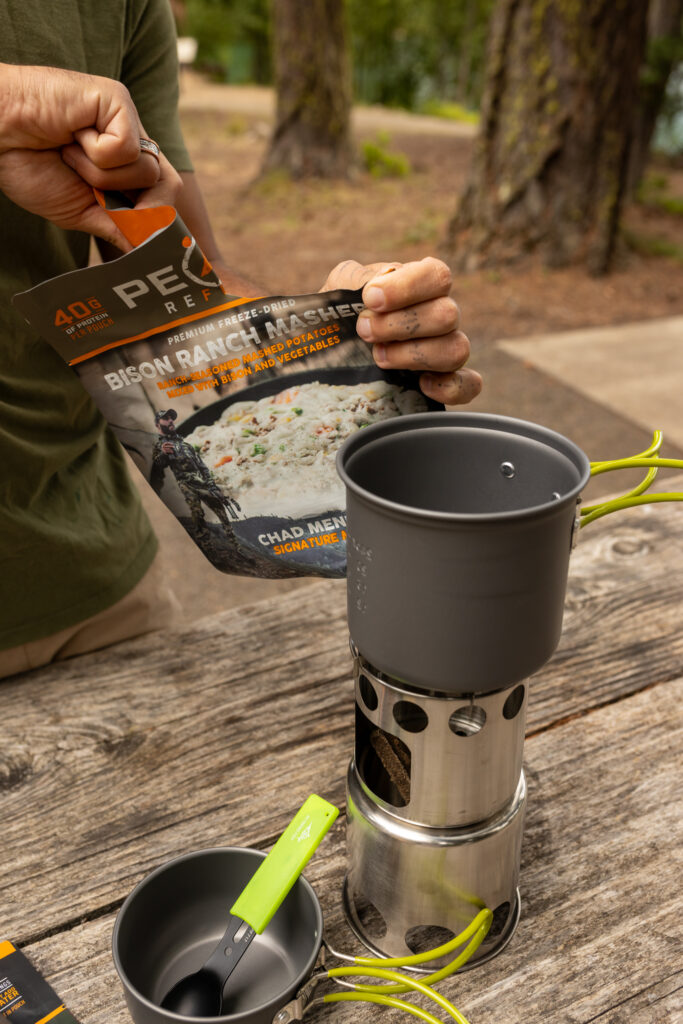
9. Cookware: Fueling Up on the Trail
A lightweight stove, cookware, and utensils are essential for preparing meals on the trail. Choose a cooking setup that suits your preferences, whether it’s a compact stove or a minimalist setup for dehydrated meals. Always follow Leave No Trace principles when cooking and disposing of waste.
10. First Aid Kit: Safety First
Accidents can happen, so a well-stocked first aid kit is a must. Include essentials like bandages, antiseptic wipes, pain relievers, and any personal medications. Additionally, take a basic wilderness first aid course to be prepared for emergencies.
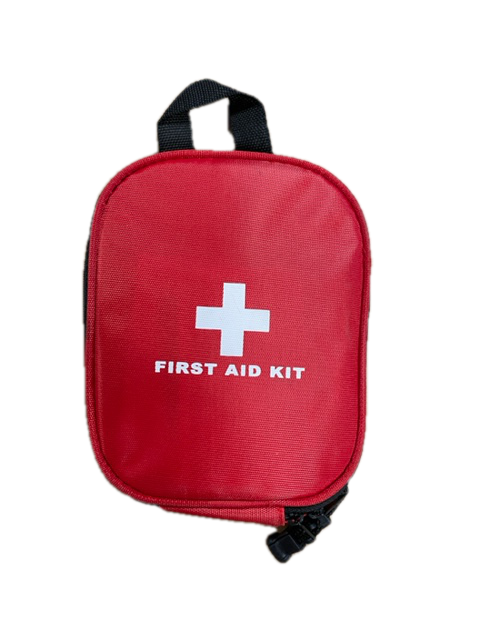
11. Lighting: Illuminating the Night
A reliable headlamp or flashlight is indispensable for nighttime activities, navigating in the dark, and providing additional security. Ensure you carry extra batteries to avoid unexpected power shortages.
13. Leave No Trace: Responsibility in the Wild
Finally, remember your Leave No Trace principles. Respect the environment, follow established trails, and dispose of waste properly. Leave nature as beautiful as you found it for future generations to enjoy.
These are the core essentials for your backpacking adventure. While the list may seem long, prioritizing lightweight, compact gear can help keep your backpack manageable. With the right gear, you’ll have the confidence to explore, enjoy, and create lasting memories in the great outdoors.
Ready to embark on your backpacking journey? Prepare wisely, and the wilderness will reward you with unforgettable experiences.
